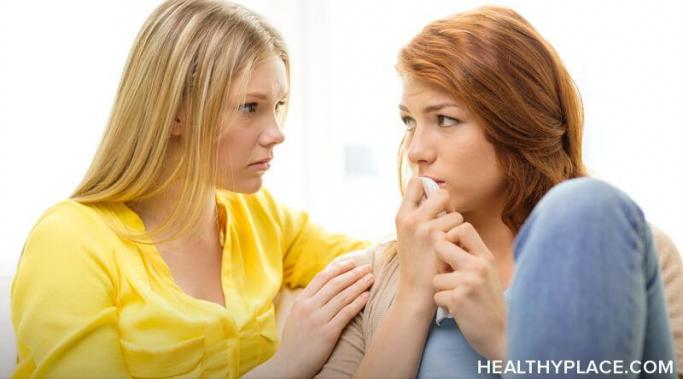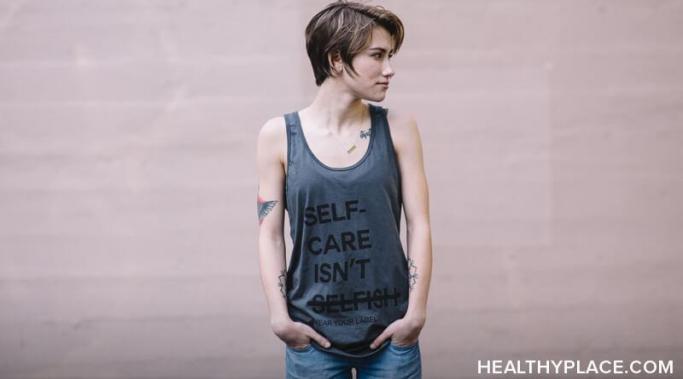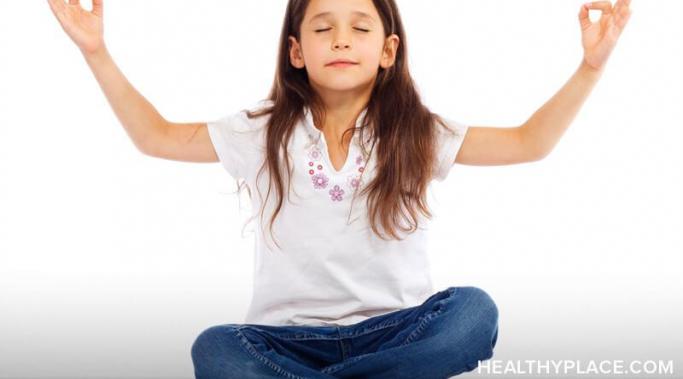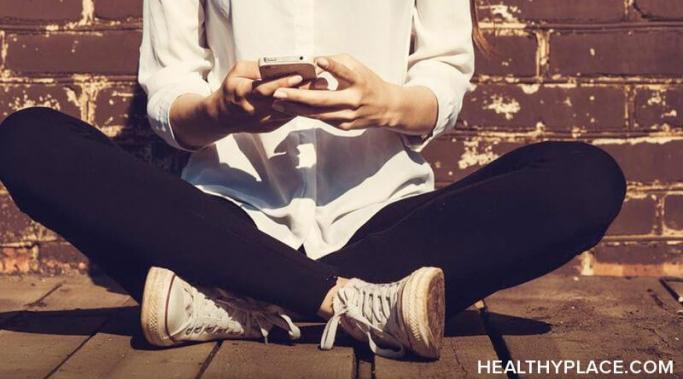Blogs
Intimate relationships often hold a mirror to us so that we may see the unhealthiest parts of ourselves. I have recently made an important connection between my codependent behaviors and my self-worth, thus unearthing a new phase in my personal wellness journey.
According to the National Action Alliance for Suicide Prevention, the suicide death rate in the first week after patients leave inpatient psychiatric care is 300 times higher than the general population. This doesn't mean that hospitalization isn't effective; it means that hospitalization is not meant to be the sole treatment for mental illness. I wish mental hospitals were like car washes, and we all magically emerge sparkling sane upon reentry to the world, but my hardest days have always been the first few days after discharge.
On October 10, World Mental Health Day, my husband, Tom, my mother, and I embarked on a National Alliance on Mental Illness (NAMI) Walk. We had raised almost $1,000 for NAMI. We’d certainly raised more than we ever had in the past. So that was great. But this walk was different than any other NAMI Walk. It was a virtual walk. Allow me to explain what that means.
Finding out that someone you love has a secret is always shocking, but few secrets are as devastating as self-harm. Helping a self-harming friend open up about his or her struggle may be beneficial for you both, but how do you tackle such a sensitive subject without damaging your relationship?
Self-care is highly recommended for managing and treating anxiety. Practicing self-care can, indeed, be very effective, allowing us to step away from stress and other anxiety-provoking situations to give ourselves a much-need break. Stepping away from the rush of daily life to reset can shift anxious thoughts and settle roiling emotions, allowing us to revitalize both physically and mentally--in theory, anyway. In practice, for many people with anxiety, engaging in self-care activities can actually cause more anxiety. What happens then?
Depression has a lot of ripple effects -- and the crippling self-doubt of imposter syndrome is one of them. Feeling like you are not good enough at your job and that any professional accomplishments are due to luck is part of imposter syndrome. While one does not need to have depression to feel like an imposter, I sometimes feel like one when my depression intensifies. Here are some signs to help you identify if you have this issue.
When self-esteem is low, we often think we need to work harder and get more done to be a valued person, but the truth is, your self-esteem will grow when you find the beauty of doing less, not more. When I learned this lesson, nobody suffered from me doing less, and my self-esteem blossomed because I was more likely to successfully fulfill my commitments.
If you love someone with attention-deficit/hyperactivity disorder (ADHD) like I do, then you probably already know what "ADHD superpowers" are. People with ADHD think differently, and being close to them can be a unique experience full of laughter and unexpected blessings. So what exactly are the benefits of ADHD, and what do they mean in terms of raising a child with the condition?
Just recently, I noticed something beautiful unfold within me: eating disorder recovery taught me to love my inner child after decades of rejecting her. This did not materialize overnight, but now it feels like coming home to a version of me who remembers a time before anorexia first lurked onto the scene.
Virtual support is a much-needed option as loneliness and mood disorders are tough to cope with, especially during the pandemic. The good news is that we have the technology to keep us connected at this time. I found an application (app) called Wisdo to be very helpful in giving me a supportive, virtual community. In this article, I will explain how you can benefit from Wisdo, as well as what you should keep in mind when using the app.









